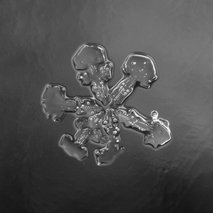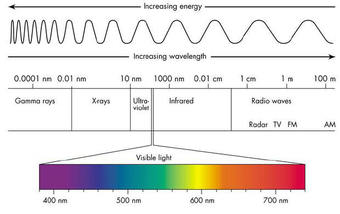 Not Snowflakes If you are not aware of the derogatory term ‘Snowflake’ or ‘Generation Snowflake,’ I will catch you up. For the past twenty years or so it has been used to dismiss someone who is upset or hurt by attacking their perceived sense of uniqueness or entitled special-ness. Alternatively, for those of us who have preschool siblings or small children in our families, you might have a slightly more positive image of snowflakes as they relate to people. I know that I have probably seen the Daniel Tiger’s Neighborhood episode, “Snowflake Day,” ten times. It has an uplifting point, if not nuanced. Here’s what Daniel’s mom tells him, “Well, snowflakes are just like people -they look a lot alike at first, but each one is different, and each one is special. Just like you, Daniel.” This is not a bad sentiment. It recognizes that everyone is different and special. But snowflakes melt. And not everyone in the world has access to snow. I’d submit that we have some better analogies that describe the uniqueness of each person’s perspective: Salt & Light. Jesus called his disciples “the salt of the earth” and “the light of the world” (Matthew 5:13-14). I’d rather be salt and light than a snowflake any day, and not merely because these are Jesus’ words. Here are some of the benefits of Salt and Light.  1. Salt & Light are everywhere. Generally, when I think of salt, I think of purified and iodized salt from dark blue containers; they have a little girl in rain gear holding an umbrella. However, earth salt is different in that it has a unique combination of elements based on where it comes from in each sample. But in spite of their universality, you can’t easily overlook salt or light. You know when food it salty or light is bright. Even if you have lost some of your senses, you can perceive them in other ways. I have a friend who fell off his skateboard and can no longer taste coffee, his favorite beverage, but he could still taste the salt in things. It’s because we have special receptors on our tongues, and complicated flavors use both our sense of taste and smell. Moreover, if you can feel heat or listen to a radio but cannot see, you still are sensing light. Furthermore, light is a massive spectrum. Yes, there are all the colors of the rainbow, but I’m talking about gamma rays, x-rays, ultraviolet, infrared, microwaves, and radio waves. Light is all around us carrying heat, information, and sheer power. And yes, I am a huge science nerd. 2. Salt & Light are useful. Both salt and light are great cleaners. Do you have a pot that won’t get clean? Use salt to bust the gunk. Do you have sheets or other laundry that have yellowed? Put them in the sun. It will naturally bleach them and it disinfects. For millennium, people have used salt to preserve food before there was refrigeration. It creates a hostile environment for dangerous microbes that would spoil food and potentially make us sick. Conversely, salt allows beneficial probiotics to thrive and improve the nutrition of some foods by fermentation. Sauerkraut anyone? Kimchi for those who can take the heat. Speaking of heat. We now can cook with infrared stovetops and microwave ovens, but that’s just separating harnessing part of the light spectrum for specific purposes. Before that we just used fire, which is also light. Can you imagine a world without light? 3. Salt & Light are vital. Arguably, life as we know it would not exist without light. The plants that we eat need it to grow. Goodness, we need it to make vitamin D, an essential building block to several processes in our bodies. Moreover, we also need salts to live and move. Think back to your biology class, or a Gatorade commercial: the sodium-potassium pump is critical for muscle movement. What does it mean to be Salt & Light?
People’s lives are not changed simply because they heard the Word. No, they need to see “love in action” (1 John 3:18). Jesus is not a magic word to reboot our broken lives. He is a person (and God) who wants relationships with each of us. If we let him, Christ can make each of us into Salt & Light to share the Bread of Life in our homes and with our communities. AuthorLeah McGlynn, Youth Ministries Director
0 Comments
Your comment will be posted after it is approved.
Leave a Reply. |
What are we?
Leah McGlynn Archives
January 2019
Categories |

 RSS Feed
RSS Feed 